May 15, 2025 | 08:46 GMT +7
May 15, 2025 | 08:46 GMT +7
Hotline: 0913.378.918
May 15, 2025 | 08:46 GMT +7
Hotline: 0913.378.918
On December 25, the Ben Tre Department of Agriculture and Rural Development held a workshop to consult on the Phase 2 feasibility study (FS) report of the digital transformation research project for the agricultural sector in the Mekong Delta. The project aims to develop sustainable agriculture and adapt to climate change, funded by the French Development Agency (AFD).
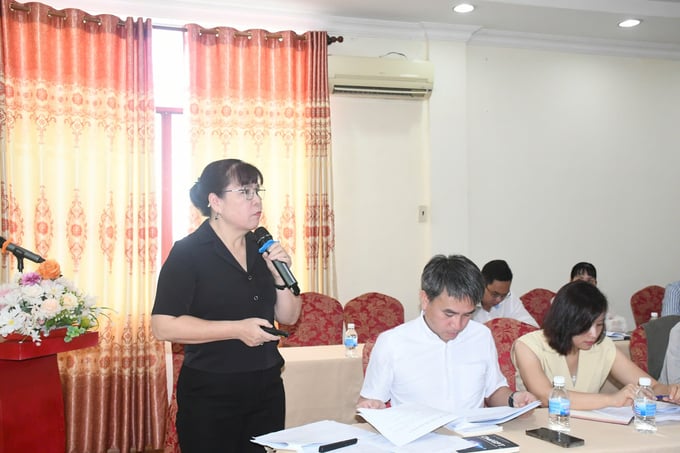
Participants provided feedback at the workshop. Photo: Cam Truc.
With a projected total investment of approximately USD 2.1 million, the project, which is being led by the Institute of Agricultural Planning and Design, will be implemented in three phases from 2025 to 2028. The project will be financed using a combination of state budget funds and international aid, with active participation from the Ministry of Agriculture and Rural Development (MARD), as well as four provinces in the Mekong Delta region: Ben Tre, Tra Vinh, Bac Lieu and Dong Thap. The project is expected to be a significant breakthrough in the management and production of agriculture in the region.
The project will develop a comprehensive IT architecture framework for the agricultural sector, establish a portal to manage production processes for key crops (rice, coconut, mango, salt). This project also deploy software to collect and manage data on monitoring and early warning systems for saltwater intrusion and drought in these four provinces. Additionally, an integrated mobile application will be developed to connect local residents and businesses, boosting production efficiency and improving access to markets. The project will also create training and communication plans to strengthen the capabilities of local managers, farmers and businesses in adopting digital transformation. Furthermore, it will propose mechanisms and policies for managing, collecting, connecting and sharing agricultural data.

Measuring the salinity in the river to take fresh water at Tan Phu sluice (Chau Thanh district, Ben Tre province) during the dry season of 2024. Photo: Minh Dam.
In order to achieve the objectives outlined above, the project will be carried out in five key components: First, developing an IT architecture framework for the agricultural sector in the Mekong Delta; second, creating a portal for managing agricultural production processes; third, formulating training and communication plans to enhance knowledge and skills; fourth, establishing mechanisms and policies for managing, collecting, connecting and sharing agricultural data; and fifth, overseeing project management, monitoring and evaluation to ensure successful implementation.
The successful completion of this project is considered a major milestone in the digital transformation of agriculture in the Mekong Delta region. This initiative will not only serve as a solution to improve productivity and reduce costs, but also assist farmers and businesses in adapting effectively to the challenges posed by climate change. Furthermore, it aims to build a modern, sustainable digital agriculture framework, positioning the Mekong Delta as a pioneering region in the nationwide digital transformation of agriculture.
Translated by Phuong Linh
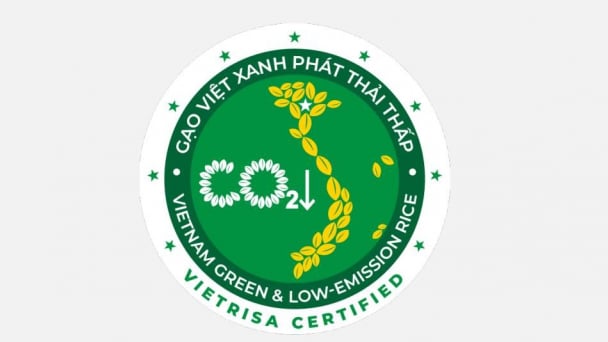
(VAN) The launch of the Vietnam green and low-emission rice brand is a positive signal for both businesses and farmers, marking readiness to reach new heights in the global market.

(VAN) The U.S. tariff will have a significant impact on Vietnam’s wood industry as well as the U.S. furniture market. A reasonable tariff rate would be beneficial for both sides.
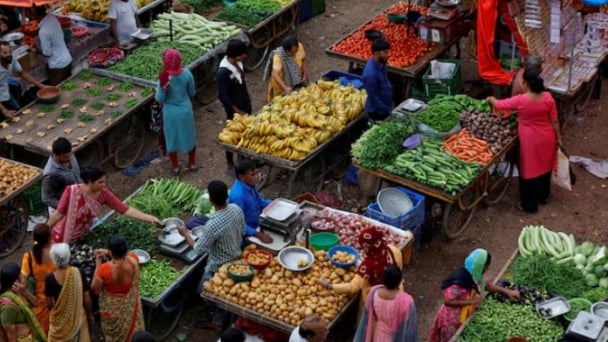
(VAN) India's retail inflation remained below the central bank's 4% target for the third consecutive month as food prices rose at a slower pace, opening up room for more interest rate cuts.
![Multi-channel, multi-directional Vietnamese agricultural markets: [5] Safety is the key](https://t.ex-cdn.com/nongnghiepmoitruong.vn/608w/files/linhnhp/2025/05/13/trai-cay-viet-nam-170345_133-221148-0908330.jpg)
(VAN) The Middle Eastern market presents new opportunities for Vietnamese agricultural products, but safety in product quality, payment, and partnership relations is a fundamental principle.

(VAN) Vietnam's participation in the AGROALBA project helps open up broader investment opportunities for enterprises to access markets in the fields of agriculture.
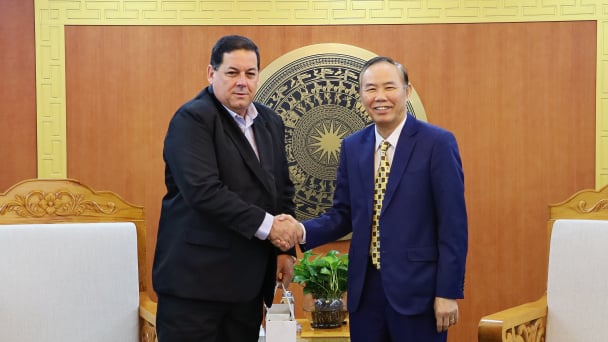
(VAN) On May 13, Deputy Minister of Agriculture and Environment Phung Duc Tien held a meeting with Cuban Deputy Minister of the Food Industry Javier Francisco Agular Rodriguez.
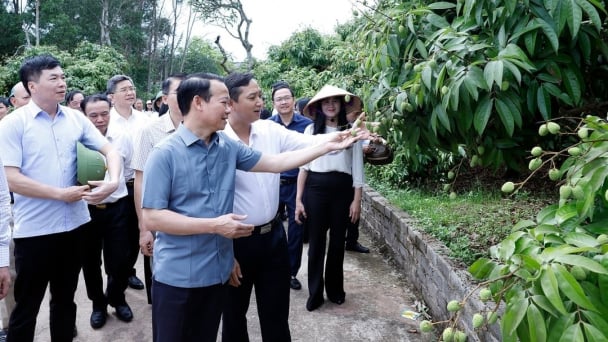
(VAN) Agriculture and environment sector experienced a 3.74% increase in growth during the first four months of 2025, with exports surpassing 21 billion USD. This growth was sustained by effective reforms and a trade surplus.